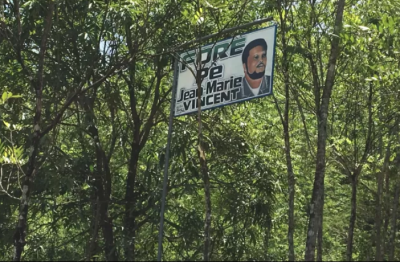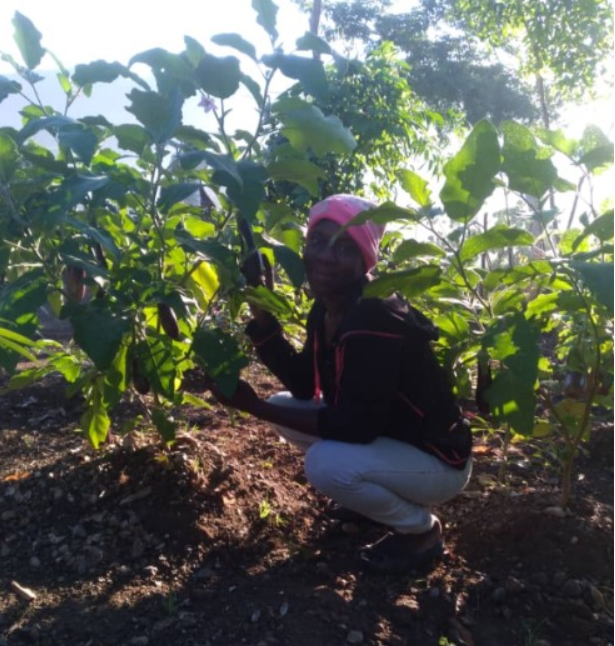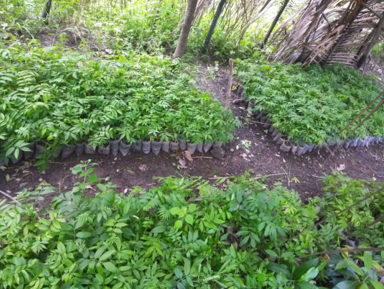
Quixote Center began its Haiti work in 1999. The first of many projects was a partnership with the Jean Marie Vincent Center in Grepen to restore the forest on a mountainside called Tet Mon. In 1999 the mountain was bare; today it is home to more than 200,000 trees. With your help, Quixote Center continues to sustain the forest by covering the cost of maintenance and security. The Tet Mon forest has become a model for the whole region.
Jean Marie Vincent was a Montfortain priest who was assassinated on 28 August 1994. According to another Montfortain, Father ChaCha, Jean Marie had a dream for Haiti. This dream was for the country, which has been extensively deforested, to be covered with trees one day. It was a bold idea, but he believed in God and he also believed in the people. For Jean Marie, planting trees was the foundation for Haiti’s future.
The project has grown. In 2021 Quixote Center began providing funds for experimental gardens within the forest, sowing food crops on the hillside and among the trees. The gardens have done well, and the harvest is used to help families in need throughout the area.

With Quixote Center’s help, the JMV Center at Grepen also cultivates tree seedlings, maintaining a nursey at the Center itself as well as satellite nurseries in surrounding villages. Local smallholder farmers are able to purchase high quality seedlings for affordable prices to plant in their own gardens and fields. One beneficiary describes the impact:
Today we say thank you to Everyone for this impactful development project in our community. None of our gardens had trees before this project. Our mountains were barren. Today we are organizing volunteer community work groups called “konbit” to plant trees in our community. This is all possible thanks to your support of the work of Karitas Gros Morne at Grepen Center. We ask God to continue to give you strength for this good work. We plant mangos, avocados, and also trees that we now use to make furniture and timber for houses alongside those fruit trees. The ladies in my community are able to sell the fruit in the market, which is making a positive impact in our local community.

In 2023 we launched a new project, to cultivate and distribute plantain seedlings. Plantains are an important part of the Haitian diet, so with access to high quality seedlings, local farmers can increase their production to feed their families and to sell for cash in the local market. Plantains are trees that grow and reproduce quickly. Their deep root systems improve soil structure and stability, reducing erosion and improving soil quality. They grow to about 15 feet, adding to the forest cover, and after the harvest farmers remove them to use the leaves, stems and fruit residue for compost and fuel, making room for the new seedlings already popping up. Each plantain tree produces around 5 seedlings.
With your help, in 2024 we are expanding the plantain project to new villages. Thank you to each of you for supporting us to support Haiti’s fragile environment.


